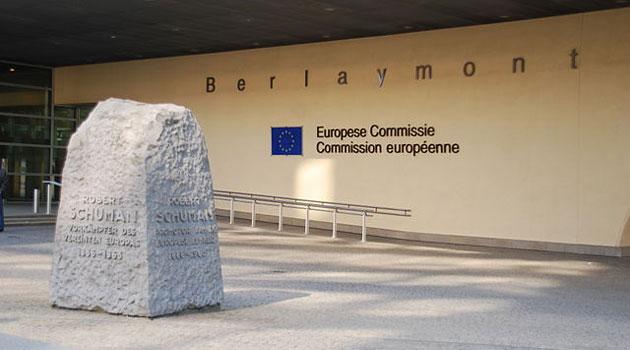European Commission: Number of Roma youth not in school and unemployed in the Czech Republic is rising

On 30 August the European Commission published the conclusions from its assessment of how the EU Member States are doing on fulfilling their national Roma Integration Strategies. According to the report, in the Czech Republic the number of Romani youth who neither attend school nor work is significantly increasing.
This autumn the Commission will also be assessing whether to proceed with the infringement proceedings it has opened against the Czech Republic, Hungary and Slovakia over the discrimination of Romani children in those countries’ education systems. EU Justice Commissioner Věra Jourová held a press conference about that issue and the Commission’s Roma report last week.
“All three ministers [of the Czech Republic, Hungary and Slovakia] know that after the school enrolments are in, which we anticipate will reflect the situation in their countries rather well, I will want to see those numbers in November,” the Justice Commissioner explained. The European Commission opened its infringement proceedings over the allegedly persistent discrimination of Romani children in the Czech schools in 2014 and has repeatedly warned that too many Romani children have sometimes been unnecessarily recommended for enrolment into “special” and “practical primary” schools, asking that Romani pupils’ access to a quality education be arranged and assured by the authorities.
If the data from the school year that is now beginning demonstrate a change in that situation, the Commissioner said that the EU executive will not move the infringement proceedings on to the next level – otherwise, they could ultimately end up before the EU Court of Justice after going through several intermediary phases. “I am not a big advocate of such administrative pressure and I rather believe that we can reach an agreement on a rational approach not just to the legislation, but mainly in practice,” the Justice Commissioner said.
Jourová also admitted that given the current political atmosphere in Europe, political courage is necessary to address this issue. She presented the press with the conclusions of the Commission’s assessment of how the EU Member States are doing on fulfilling their National Roma Integration Strategies.
The assessment focused on developments in the position of Romani people since 2011 in the EU. There are between six and seven million Romani people living in the EU, nine-tenths of whom predominantly live in 11 countries of eastern and southern Europe.
“It is possible to say that the situation overall is slowly improving, for example, Romani children are attending preschool more and the proportion of Romani children dropping out of school is falling. On the other hand, from the appraisal it also follows that up to 80 % of Romani people are constantly at risk of impoverishment, although that number is lower than it was in 2011,” the Commission report reads.
“The European Union is based on values such as equality and tolerance,” Commission Vice-President Frans Timmermans said last week. “It is unacceptable that these values are not yet affecting all EU citizens.”
“If we are to eliminate the discrimination, prejudice and segregation that Romani people face today, the Member States must accelerate their efforts to improve the integration of Romani people,” Timmermans said. The available data, according to the Justice Commissioner, demonstrate that the Member States should make more efforts in areas such as education and especially Romani youths’ subsequent transition to employment.
“We are seeing a bad outlook even for those young people who have achieved an education to then access the normal labor market processes,” Jourová warned. In that area, in her view, EU money should aid the situation, as should local authorities and nonprofit organizations.
“Through work, one can achieve human dignity and quality of life… and we are still not yet managing to facilitate this, mainly for a greater number of Romani youth,” the Justice Commissioner noted. Specifically in the Czech Republic, the number of Romani youths (aged 16 to 24) who neither attend school nor work grew from 43 % in 2011 to 51 % in 2016.
On the other hand, between 2011 and 2016 the situation of Romani people in education improved in the Czech Republic. The proportion of Romani children who end their educational careers with a primary education only (through ninth grade) has especially significantly fallen.
Romani people are also reporting less frequent discrimination in employment, job-seeking and the schools than they have reported in the past. “An important step, albeit just the initial step, is that the Governments of these EU Member States have strategies on Roma inclusion that they have drafted with the support of the Commission,” the Justice Commissioner told the press.
“Now the Member States must implement those strategies so that they will actually impact people’s lives. This applies first and foremost to education: Romani children should have absolutely the same access to education as all other children do because education is key to their better inclusion into society, it is the gateway to job opportunities and to a better life for all,” Jourová recommended, adding that the Czech Republic is improving when it comes to the number of Romani children attending nursery schools and preschools.
“That improvement is positive, the children who then go to first grade do not have to struggle as much with the basic learning habits and the language of instruction,” she said. In some countries such as Bulgaria and Romania, however, there continue to be problems with members of the Romani minority accessing health care and housing.
BASIC FINDINGS OF THE EU REPORT
Education: More Romani children are receiving early childhood care and a preschool education (53 % in 2016 compared to 47 % in 2011). The most significant improvements were noted in Bulgaria, Hungary, Romania, Slovakia and Spain.
Fewer Romani children are dropping out of school (68 % in 2016 compared to 87 % in 2011). These numbers are still too high, and educational segregation remains a problem in some countries: In Bulgaria, Hungary and Slovakia more than 60 % of Romani children are educated separately from other children.
Employment: A growing proportion of Romani youth are unemployed and not attending any continuing education or professional training ( 63 % in 2016 compared to 56 % in 2011), a disturbing signal that the transition from education to employment and other areas is not effective. This negative trend is apparent in the Czech Republic, Hungary, Romania, Slovakia and Spain.
Health care: In many Member States insufficient coverage of Romani patients by basic health insurance remains a serious problem. For example, in Bulgaria and Romania half of the Romani population has no access to basic health insurance.
Housing: Romani households’ access to basic utilities (electricity and potable water) is improving, especially in Bulgaria, the Czech Republic, Romania and Slovakia. However, Romani people in the Czech Republic, Portugal and Spain report they are being more frequently discriminated against when it comes to access to housing, including social housing.
